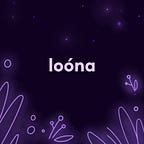To sleep or not to sleep? How much is too much?
You have probably heard that 8 hours of sleep is the universally perfect amount of sleep. The National Sleep Foundation’s (NSF) 2015 updated recommendations reveal that 8 hours may be a rough average but it is not necessarily accurate.
In fact, your ‘sleep need’ — that is, the amount of sleep you need — is unique to you. The exact amount depends on many factors including your age, genetics, sex, environment and lifestyle.
The NSF consulted with a broad range of experts, including specialists in paediatrics, neurology, psychiatry and gynaecology, to ensure that all relevant factors were taken into consideration.
The NSF guidelines clearly recognise that, to a certain extent, some people need more or less sleep than others in their age group. Take ‘young adults’: the guidelines recommend 7–9 hours, but they also note that 6–11 hours ‘may be appropriate’.
Is sleep need influenced by genetics or environment?
In short, it’s a bit of both.
There are genes that have been proven to alter ‘sleep drive’ — which tells us when we need to sleep/wake — as well as sleep need. Only around 1% of people may require just 4–6.5 hours of sleep each night.
Although we are genetically predisposed to require a certain amount of sleep, our environment is also a key factor.
The seasons can impact our sleep need as well as our lifestyles. More exposure to sunlight in the summer can influence us to rise earlier and sleep less. High levels of physical activity during the day will require you to rest more during the night. Similarly, stressful jobs will also require you to sleep more.
Why is it so important to meet my sleep need?
You may be wondering what all the fuss is about. Well, sleep is important and not getting enough of it can have grave consequences.
While we are sleeping, our brain is processing information we have learnt and emotions we have felt to develop our memories. This is why children need more sleep as they are learning lots of new information very quickly.
Sleep is also used as an opportunity for our bodies to repair joints and muscles and to complete crucial detoxifying functions. This is why teenagers may need more sleep than adults as their bodies are undergoing the physical (and emotional) changes associated with puberty.
As a result, sleep is key to our physical and mental health. When we get enough sleep we are suitably prepared for the next day. When we don’t get enough sleep our metabolism, brain function and mood are compromised and in the long-term we are more prone to developing diseases.
As we are increasingly living hectic, 24-hour lives, many attempt to make up for sleep that was lost during the week by having ‘duvet days’ on the weekend. Unfortunately, lost sleep can’t always be compensated for by sleeping more in the future, particular if you have suffered 2 or more consecutive nights of sleep loss.
Sleeping too much has also been associated with health problems, although it’s unclear whether it is the oversleeping that causes the illness or the other way around. You should consult a doctor if you consistently sleep more than the recommended amount.
How do I know if I’m getting enough sleep?
Ask yourself the following questions:
· Do I lack alertness during the day?
· Do I feel the need to sleep during the day?
If the answer is yes to either of those questions, then it’s likely that your sleep need is not being met.
To summarise, your sleep need is specific to your biology, lifestyle and environment. As an adult, 6–10 hours of sleep each night can be considered a normal sleep need. If your sleep does not leave you feeling refreshed or you struggle to get through your day without feeling fatigued then you should take steps to lengthen the amount of hours you sleep. Check out Loóna’s article on ‘sleep hygiene’ for some useful tips on how to do this.
Happy snoozing!
